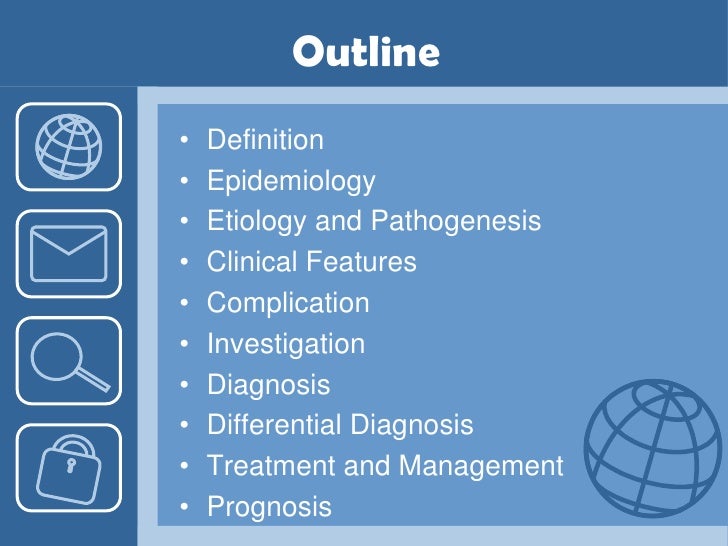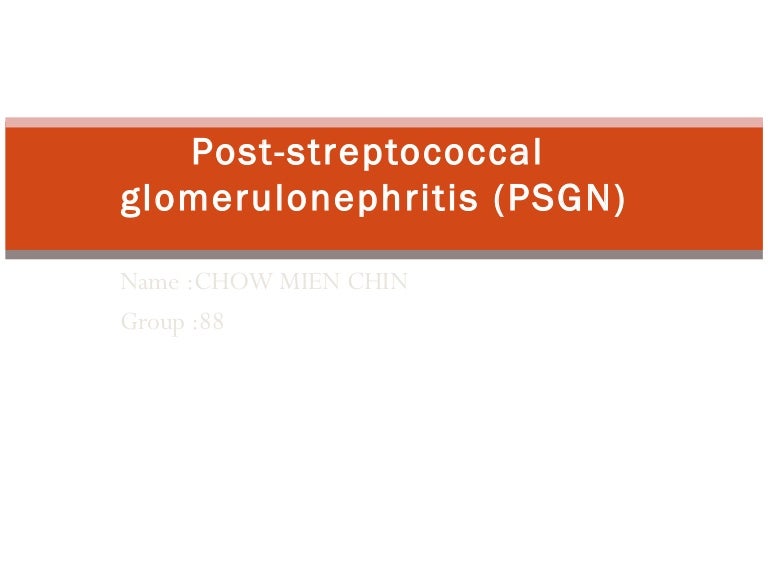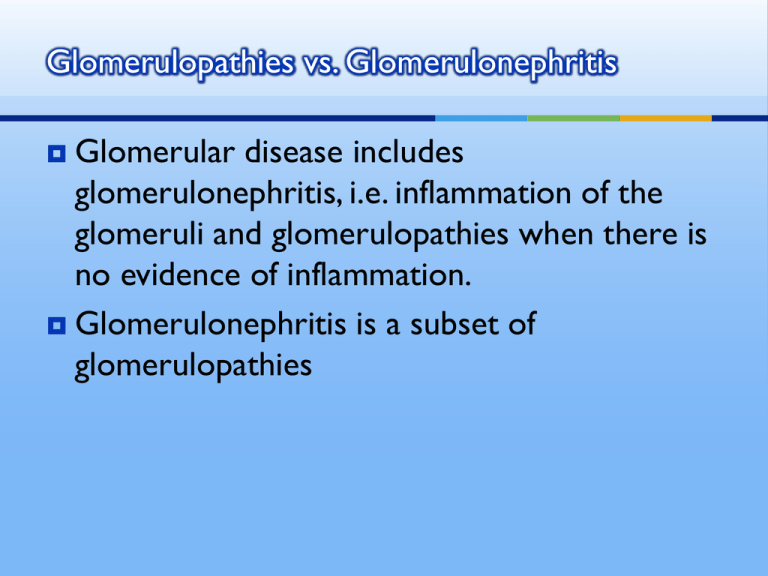Your Post strep glomerulonephritis treatment images are available. Post strep glomerulonephritis treatment are a topic that is being searched for and liked by netizens today. You can Download the Post strep glomerulonephritis treatment files here. Find and Download all royalty-free photos and vectors.
If you’re looking for post strep glomerulonephritis treatment images information connected with to the post strep glomerulonephritis treatment keyword, you have come to the ideal site. Our website frequently provides you with suggestions for viewing the maximum quality video and picture content, please kindly hunt and find more enlightening video content and graphics that fit your interests.
Post Strep Glomerulonephritis Treatment. Poststreptococcal or postinfectious glomerulonephritis PSGN refers to acute glomerular inflammation that results from a preceding infection with nephritogenic strains of streptococciAlthough most commonly seen in children following group A streptococcal tonsillopharyngitis skin infections such as impetigo may trigger PSGN as well. You have 3 more open access pages. It is not caused by the bacteria itself but by the bodys infection fighting immune system. Acute post streptococcal glomerulonephritis is an immunologic response of the kidney to infection characterized by the sudden appearance of edema hematuria proteinuria and hypertension.
 Pdf Post Streptococcal Glomerulonephritis Leading To Posterior Reversible Encephalopathy Syndrome A Case Report From researchgate.net
Pdf Post Streptococcal Glomerulonephritis Leading To Posterior Reversible Encephalopathy Syndrome A Case Report From researchgate.net
Poststreptococcal or postinfectious glomerulonephritis PSGN refers to acute glomerular inflammation that results from a preceding infection with nephritogenic strains of streptococciAlthough most commonly seen in children following group A streptococcal tonsillopharyngitis skin infections such as impetigo may trigger PSGN as well. The main way to prevent PSGN is to prevent group A strep infections. Consider as a ddx to post-strep GN esp. Treatment of glomerulonephritis and your outcome depend on. It is caused by an infection with a type of streptococcus bacteria. Treatment of a carrier state may prevent spread to other household members.
This disorder may begin to develop one to two weeks after an.
Acute poststreptococcal glomerulonephritis APSGN is the prototype of post-infectious glomerulonephritis and is associated with a previous skin or throat infection by group A streptococcus Streptococcus pyogenes or occasionally groups C or G streptococcusAccording to Becker and Murphy Becker Murphy 1968 the development of. Acute glomerulonephritis that results from streptococcal infections is the best-studied immune complex-mediated glomerulonephritis. Poststreptococcal glomerulonephritis PSGN is a kidney disease that develops 10 to 14 days after a skin or throat infection. Streptococcal bacteria can cause a number of different conditions. Acute post-streptococcal glomerulonephritis APSGN is an immune mediated condition characterized by glomerular inflammation precipitating kidney dysfunction occurring 7-10 days following streptococcal pharyngitis or 2-4 weeks following streptococcal skin infection. Post-streptococcal glomerulonephritis gloe-mer-u-low-nuh-FRY-tis or PSGN is a rare kidney disease that can develop after group A strep infections.

This can lead to high blood pressure and become harmful to your child. Post-streptococcal glomerulonephritis PSGN is a disease of the kidneys which occurs after infection with certain strains of a bacterium called group A streptococcus GAS. It is not caused by the bacteria itself but by the bodys infection fighting immune system. Some cases of acute glomerulonephritis especially those that follow a strep infection might improve on their own and require no treatment. The type and severity of your signs and symptoms.
 Source: pt.slideshare.net
Source: pt.slideshare.net
In addition at least one report suggested that patients who receive post-streptococcal glomerulonephritis antibiotic treatment have a milder clinical course 37. B 7 13 14 17. Acute glomerulonephritis that results from streptococcal infections is the best-studied immune complex-mediated glomerulonephritis. Poststreptococcal glomerulonephritis PSGN is characterized by rapid deterioration of kidney functions due to an inflammatory response type III hypersensitivity reaction following streptococcal infection. In addition at least one report suggested that patients who receive post-streptococcal glomerulonephritis antibiotic treatment have a milder clinical course 37.
 Source: aafp.org
Source: aafp.org
For over a century acute post-streptococcal glomerulonephritis APSGN was the prototypical form of bacterial infection-associated glomerulonephritis typically occurring after resolution of infection and a distinct infection-free latent period. Acute glomerulonephritis that results from streptococcal infections is the best-studied immune complex-mediated glomerulonephritis. Poststreptococcal or postinfectious glomerulonephritis PSGN refers to acute glomerular inflammation that results from a preceding infection with nephritogenic strains of streptococciAlthough most commonly seen in children following group A streptococcal tonsillopharyngitis skin infections such as impetigo may trigger PSGN as well. Drusen lipodystrophy Test CH50 AH50 factors IH C3 nephritic factor Factor H mutation screening etc. What is post-streptococcal glomerulonephritis.
 Source: pinterest.com
Source: pinterest.com
Initially described in the convalescence of scarlet fever the incidence of acute post streptococcal glomerulonephritis APSGN has decreased worldwide particularly in developed countries where it is now rare and is limited to. Streptococcal bacteria can cause a number of different conditions. You have 3 more open access pages. Whil e Group A Streptococcus GAS infection is the most. The type and severity of your signs and symptoms.
 Source: pinterest.com
Source: pinterest.com
Post-Infectious GN is a disease that occurs in the kidneys. You have 3 more open access pages. Treatment of group A streptococcal pharyngitis with antibiotics is indicated in patients with a positive rapid antigen detection test or throat culture result. Post-streptococcal glomerulonephritis PSGN is an inflammation of your childs kidneys. Poststreptococcal GN is a form of glomerulonephritis.
 Source: pinterest.com
Source: pinterest.com
It is essentially a disease of childhood that accounts for approximately 90 of renal disorders in children. Initially described in the convalescence of scarlet fever the incidence of acute post streptococcal glomerulonephritis APSGN has decreased worldwide particularly in developed countries where it is now rare and is limited to. It is the result of an infection of a completely different area such as the skin or throat. Acute glomerulonephritis is a disease characterized by the sudden appearance of edema hematuria proteinuria and hypertension. The disorder may develop 1 to 2 weeks after an untreated throat infection or 3 to 4 weeks after a skin infection.
 Source: semanticscholar.org
Source: semanticscholar.org
Post streptococcal glomerulonephritis characteristically occurs 7 to 14 days after infection with group A beta haemolytic streptococcus and accounts for 90 of acute glomerulonephritis. Drusen lipodystrophy Test CH50 AH50 factors IH C3 nephritic factor Factor H mutation screening etc. Acute post streptococcal glomerulonephritis is an immunologic response of the kidney to infection characterized by the sudden appearance of edema hematuria proteinuria and hypertension. Consider as a ddx to post-strep GN esp. It is a representative disease of acute nephritic syndrome in which inflammation of the glomerulus is manifested by proliferation of cellular elements secondary to an immunologic mechanism see the following image.
 Source: youtube.com
Source: youtube.com
Consider as a ddx to post-strep GN esp. Drusen lipodystrophy Test CH50 AH50 factors IH C3 nephritic factor Factor H mutation screening etc. Post-streptococcal glomerulonephritis PSGN is an inflammation of your childs kidneys. The main way to prevent PSGN is to prevent group A strep infections. Rodriguez-Iturbe B Musser JM.
 Source: pinterest.com
Source: pinterest.com
The main symptoms are blood in your childs wee urine and swollen ankles or puffy eyes. Post-streptococcal glomerulonephritis gloe-mer-u-low-nuh-FRY-tis or PSGN is a rare kidney disease that can develop after group A strep infections. This condition results from specific strains of group A beta-hemolytic streptococci called nephrogenic streptococci. It is caused by an infection with a type of streptococcus bacteria. B 7 13 14 17.
 Source: slideshare.net
Source: slideshare.net
It can prevent your childs kidneys from getting rid of waste and extra fluid. Acute Post-Streptococcal Glomerulonephritis in the Northern Territory of Australia. You have 3 more open access pages. Post streptococcal glomerulonephritis characteristically occurs 7 to 14 days after infection with group A beta haemolytic streptococcus and accounts for 90 of acute glomerulonephritis. It is essentially a disease of childhood that accounts for approximately 90 of renal disorders in children.
 Source: researchgate.net
Source: researchgate.net
Acute post streptococcal glomerulonephritis is an immunologic response of the kidney to infection characterized by the sudden appearance of edema hematuria proteinuria and hypertension. Poststreptococcal glomerulonephritis PSGN is a kidney disease that develops 10 to 14 days after a skin or throat infection. Streptococcal bacteria can cause a number of different conditions. B 7 13 14 17. The infection causes filters in the kidneys to become swollen.
 Source: br.pinterest.com
Source: br.pinterest.com
The main way to prevent PSGN is to prevent group A strep infections. Other less common forms of infection-associated glo. You have 3 more open access pages. It is essentially a disease of childhood that accounts for approximately 90 of renal disorders in children. This makes the kidneys less able to filter and remove wastes.
 Source: studylib.net
Source: studylib.net
Initially described in the convalescence of scarlet fever the incidence of acute post streptococcal glomerulonephritis APSGN has decreased worldwide particularly in developed countries where it is now rare and is limited to. Acute post-streptococcal glomerulonephritis APSGN is an immune mediated condition characterized by glomerular inflammation precipitating kidney dysfunction occurring 7-10 days following streptococcal pharyngitis or 2-4 weeks following streptococcal skin infection. Acute subacute chronic RPGN Look for other non-renal clinical features in type II MPGN DDD. Poststreptococcal glomerulonephritis PSGN is characterized by rapid deterioration of kidney functions due to an inflammatory response type III hypersensitivity reaction following streptococcal infection. Whil e Group A Streptococcus GAS infection is the most.
 Source: scielo.br
Source: scielo.br
Acute subacute chronic RPGN Look for other non-renal clinical features in type II MPGN DDD. The infection causes filters in the kidneys to become swollen. Poststreptococcal or postinfectious glomerulonephritis PSGN refers to acute glomerular inflammation that results from a preceding infection with nephritogenic strains of streptococciAlthough most commonly seen in children following group A streptococcal tonsillopharyngitis skin infections such as impetigo may trigger PSGN as well. Drusen lipodystrophy Test CH50 AH50 factors IH C3 nephritic factor Factor H mutation screening etc. Poststreptococcal glomerulonephritis PSGN is characterized by rapid deterioration of kidney functions due to an inflammatory response type III hypersensitivity reaction following streptococcal infection.

Acute glomerulonephritis is a disease characterized by the sudden appearance of edema hematuria proteinuria and hypertension. Acute glomerulonephritis that results from streptococcal infections is the best-studied immune complex-mediated glomerulonephritis. Whil e Group A Streptococcus GAS infection is the most. Consider as a ddx to post-strep GN esp. The type and severity of your signs and symptoms.
 Source: researchgate.net
Source: researchgate.net
The infection causes filters in the kidneys to become swollen. Rodriguez-Iturbe B Musser JM. Poststreptococcal or postinfectious glomerulonephritis PSGN refers to acute glomerular inflammation that results from a preceding infection with nephritogenic strains of streptococciAlthough most commonly seen in children following group A streptococcal tonsillopharyngitis skin infections such as impetigo may trigger PSGN as well. Post-streptococcal glomerulonephritis gloe-mer-u-low-nuh-FRY-tis or PSGN is a rare kidney disease that can develop after group A strep infections. Initially described in the convalescence of scarlet fever the incidence of acute post streptococcal glomerulonephritis APSGN has decreased worldwide particularly in developed countries where it is now rare and is limited to.
 Source: aafp.org
Source: aafp.org
Whil e Group A Streptococcus GAS infection is the most. Drusen lipodystrophy Test CH50 AH50 factors IH C3 nephritic factor Factor H mutation screening etc. The main symptoms are blood in your childs wee urine and swollen ankles or puffy eyes. This can lead to high blood pressure and become harmful to your child. The disease affects the.
 Source: pinterest.com
Source: pinterest.com
It is not caused by the bacteria itself but by the bodys infection fighting immune system. The disorder may develop 1 to 2 weeks after an untreated throat infection or 3 to 4 weeks after a skin infection. Post-Infectious GN is a disease that occurs in the kidneys. It is essentially a disease of childhood that accounts for approximately 90 of renal disorders in children. Rodriguez-Iturbe B Musser JM.
This site is an open community for users to do submittion their favorite wallpapers on the internet, all images or pictures in this website are for personal wallpaper use only, it is stricly prohibited to use this wallpaper for commercial purposes, if you are the author and find this image is shared without your permission, please kindly raise a DMCA report to Us.
If you find this site helpful, please support us by sharing this posts to your favorite social media accounts like Facebook, Instagram and so on or you can also save this blog page with the title post strep glomerulonephritis treatment by using Ctrl + D for devices a laptop with a Windows operating system or Command + D for laptops with an Apple operating system. If you use a smartphone, you can also use the drawer menu of the browser you are using. Whether it’s a Windows, Mac, iOS or Android operating system, you will still be able to bookmark this website.






